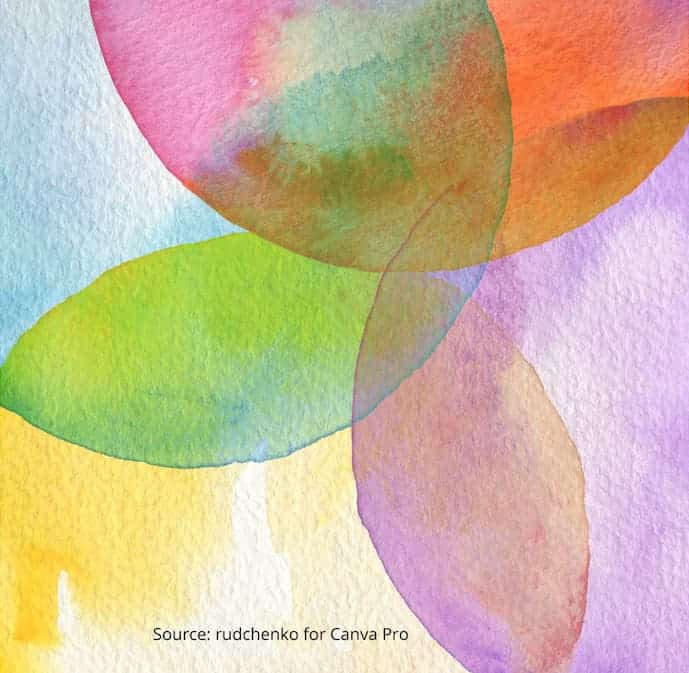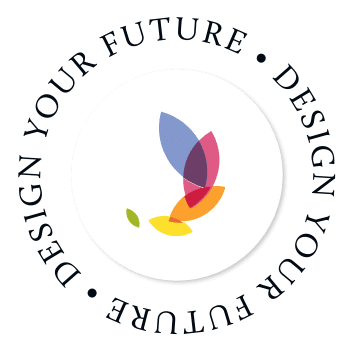Have you ever shared an experience with someone only to learn later that their interpretation of the events differed from yours? Perhaps it was as simple as a movie you watched. Or maybe you witnessed an argument between mutual friends. Whatever the case, each of you walked away with a different view of what happened because you filtered the experience through a separate intersectional lens.
What is an Intersectional Lens?
An intersectional lens isn’t a physical item, but a concept or framework that aims to explain why every person sees the world in a unique way. It’s the compilation of all the influences and unique experiences in our lives that come together to shape our worldview.
There are many influences that can affect your perspective. And these include things that you have very little (if any) control over such as your:
- family
- race
- ethnic identity
- generational identity
- community
- education
- national identity
- gender identity
- sexual orientation
- socioeconomic status
- physical ability
But there are also influences that arise from the environments in which you immerse yourself. This could be your workplace, informal friend groups, or communities based on shared passions like sports, each of which have their own set of norms and rules.
The point where each of these influences (and their associated norms and rules) come together becomes your intersectional lens. You then filter everything new that comes into your life, such as people or ideas, through this lens when deciding how you feel about them. Furthermore, this lens isn’t static. It’s more like a kaleidoscope which means your perspective can shift as each influence becomes more or less powerful.
Understanding the Connection to Intersectionality
Although they are closely related, It’s important not to confuse the term “intersectional lens” with “intersectionality.” Law professor Kimberlé Crenshaw coined the term intersectionality when sharing a theory that focuses on how these overlapping influences can bring about systemic prejudice and oppression.
When we look at the intersectional lens from this vantage, it’s typically more from the outside in. Meaning, in the broader fight against social injustices and violence that arise from intolerance, racism, and sexism it’s important that we understand the role of the intersectional lens. To create real change we must address the root of these problems by changing the attitudes and systemic influences that come together to create harmful worldviews.
Yet it’s also critical to take a look at your own intersectional lens as an individual – from the inside out. You need to understand the influences that form your lens because they affect your perspective and opinions. This means your intersectional lens impacts not only how you interact with others, but your ability to make important decisions that empower you to achieve your goals.
In my work with organizations, I often approach the intersectional lens from both perspectives. But when working one-on-one with coaching clients, we typically focus on the inside out view since becoming aware of your personal influences is an important step toward unlocking the potential for transformative change in all areas of your life.
Why is Becoming Conscious of Your Intersectional Lens Important?

We make roughly 35,000 decisions per day, most of which are unconsciously influenced by our intersectional lens. This means we take in information, process it, and form assumptions, based on the social and cultural conditioning we receive through different influencers. In the absence of complete information, these assumptions can be powerful in our decision-making. Each choice we make results in an action or effect, the outcome of which continues to influence our perspective.
Raising our awareness about each element within our intersectional lens helps us shift our decision-making from a mostly unconscious process to one that is conscious and intentional. By interjecting consciousness into even a small fraction of our decision-making, we have the ability to change our perspectives, and ultimately our life.
How does this play out?
In my work, I see the influence of an intersectional lens happening in two main areas. First, I see it with clients who want to make a monumental shift in their lives. They may have a goal mapped out, such as a career change, but find themselves stuck within a step of the process. Their frustration builds, and they find themselves pacing back and forth behind an invisible starting line, unable to cross. By mapping out all the influences and conditioning that form their lens on that topic, we identify what might be holding them back from what they truly want in life.
Another area in my practice where I see a person’s lens playing a major role is when working with leaders from diverse backgrounds. In a world where unique ideas can lead to a significant competitive advantage, being able to see a challenge from a different perspective is an incredible asset. By understanding the influencers within their own intersectional lens, and then being able to articulate how one might approach a challenge in a unique way, these leaders are able to successfully socialize and launch new ideas.
How Can You Begin to Recognize Your Intersectional Filters?

Being able to recognize the different filters within your intersectional lens is a key step in unlocking your potential. A simple exercise can help.
Find a way to record your insights – by jotting down your thoughts in a notebook, through an app, or even by placing sticky notes on a wall. Alternatively, you can download this worksheet to complete now or save it on your desktop for later. When you’re ready, you can start to recognize your filters by following these steps:
Step 1: Identify a topic you want to focus on.
When I’m working with clients, we often focus on a decision they’re struggling with. But if you found this post through a search, perhaps you can start with why you conducted that search. What experience or situation inspired you to learn more about the intersectional lens and why?
Step 2: Consider all the influences that affect your views on this topic and write down the 5 most important or impactful ones.
These could be any of the following, or more:
- Family of Origin
- Society
- Local Community
- Racial Identity
- National Identity
- Professional Identity
- Organizational Culture
- Generational Identity
- Education
- Gender Identity
- Sexual Orientation
- Physical Ability
- Religious Identity
- Friend Groups
- Affinity Groups
Step 3: Think about each influence separately and jot down the messages, feelings, or experiences that come up for you next to each one.
Step 4: Notice the common themes.
Looking at the results, what are the common themes that are coming up for you? These themes are what form your intersectional lens on your topic.
The Power of Your Intersectional Lens
Since our intersectional lens influences us on an unconscious level, the steps above allow us to examine our beliefs on a conscious level. For instance, were your thoughts on the topic related to a certain time or person in your life? How relevant are those thoughts to your life today? Once you become aware of where your beliefs are coming from, you unlock the potential to overcome obstacles, rewrite your narrative, and create new opportunities for yourself.
What can you do now? At this point, I would suggest that you pick one action you want to take based on what you’ve learned. To discover more about how you can overcome limiting beliefs and start building your exceptional future please visit our resources page.





